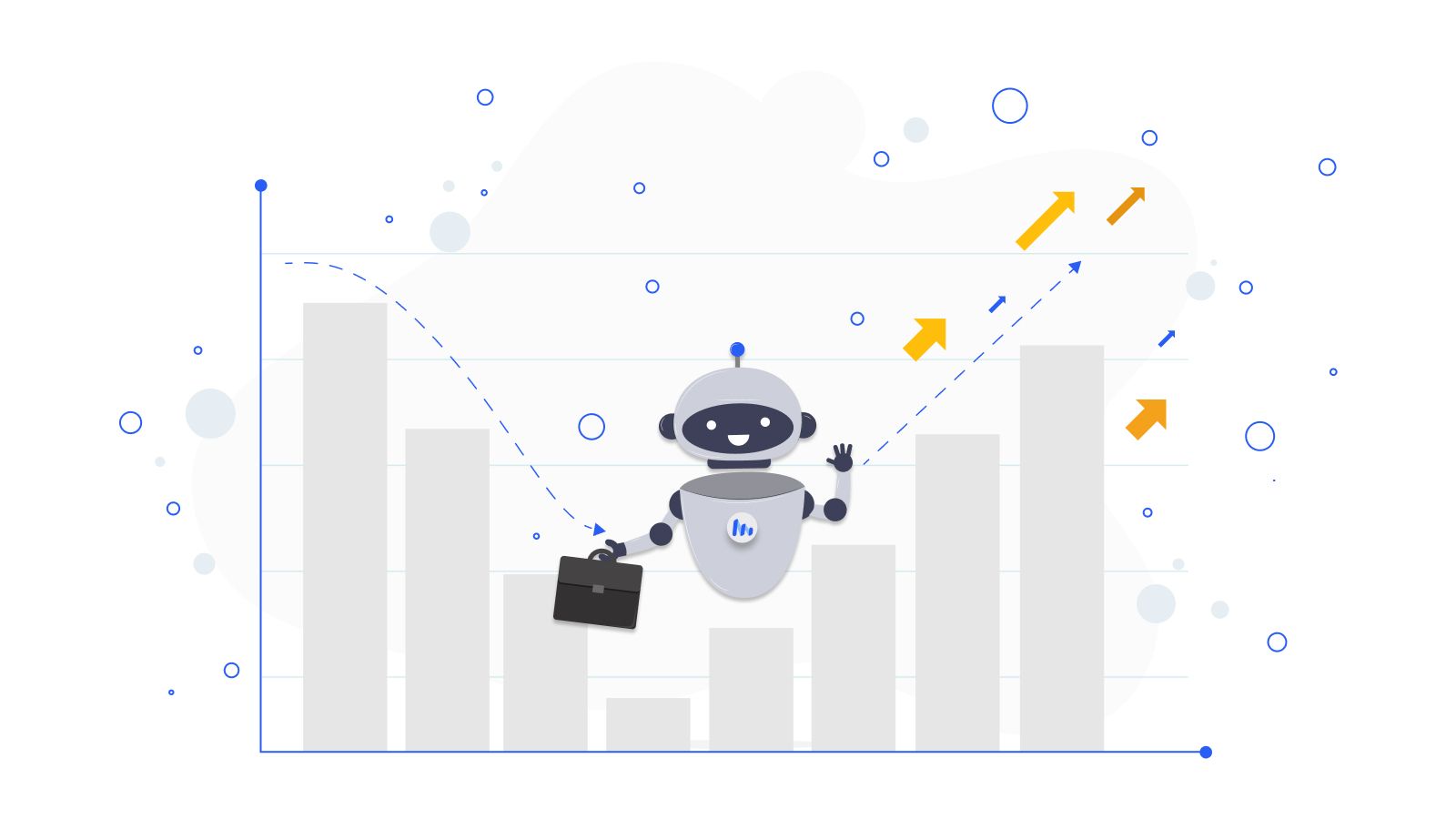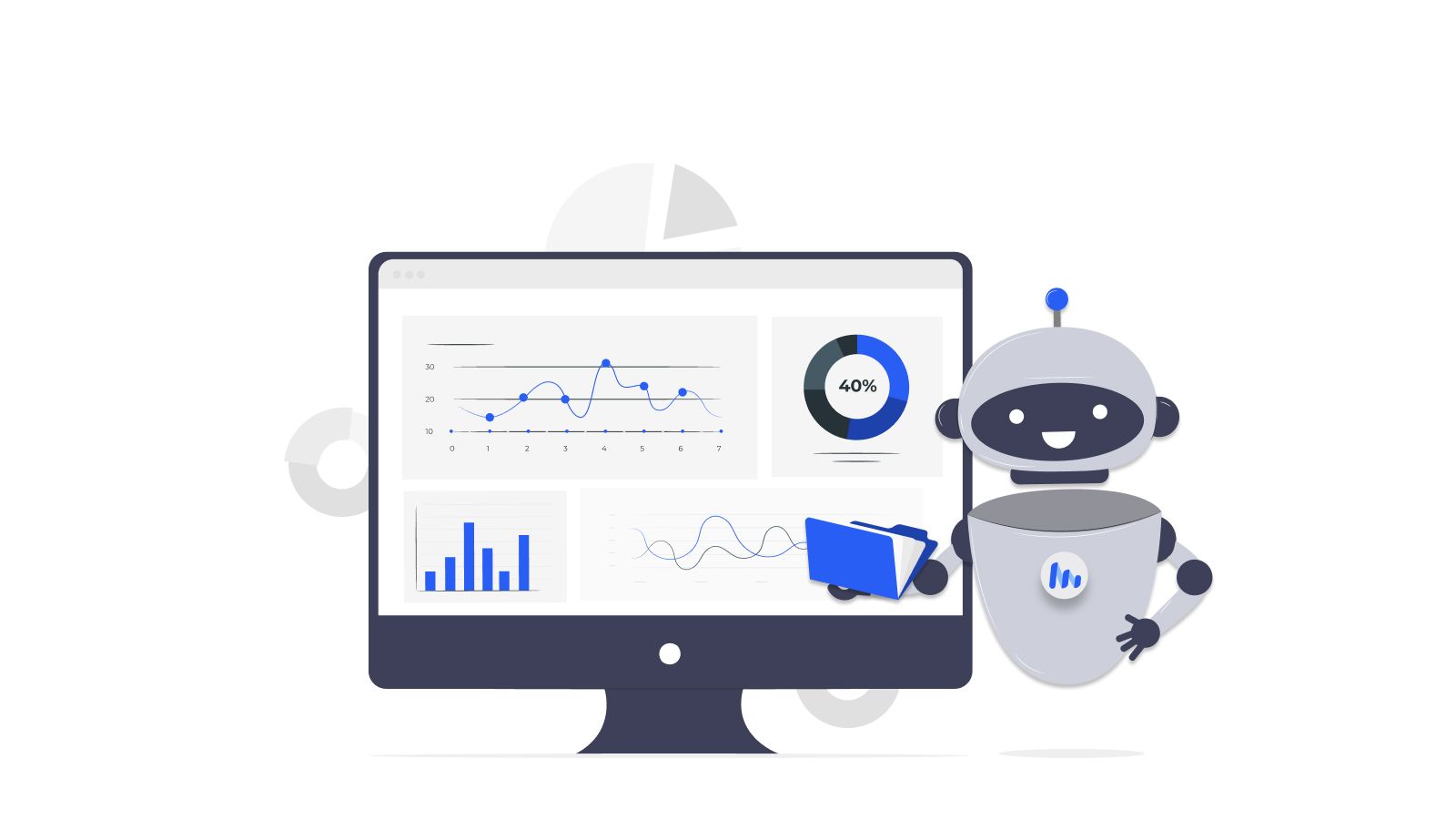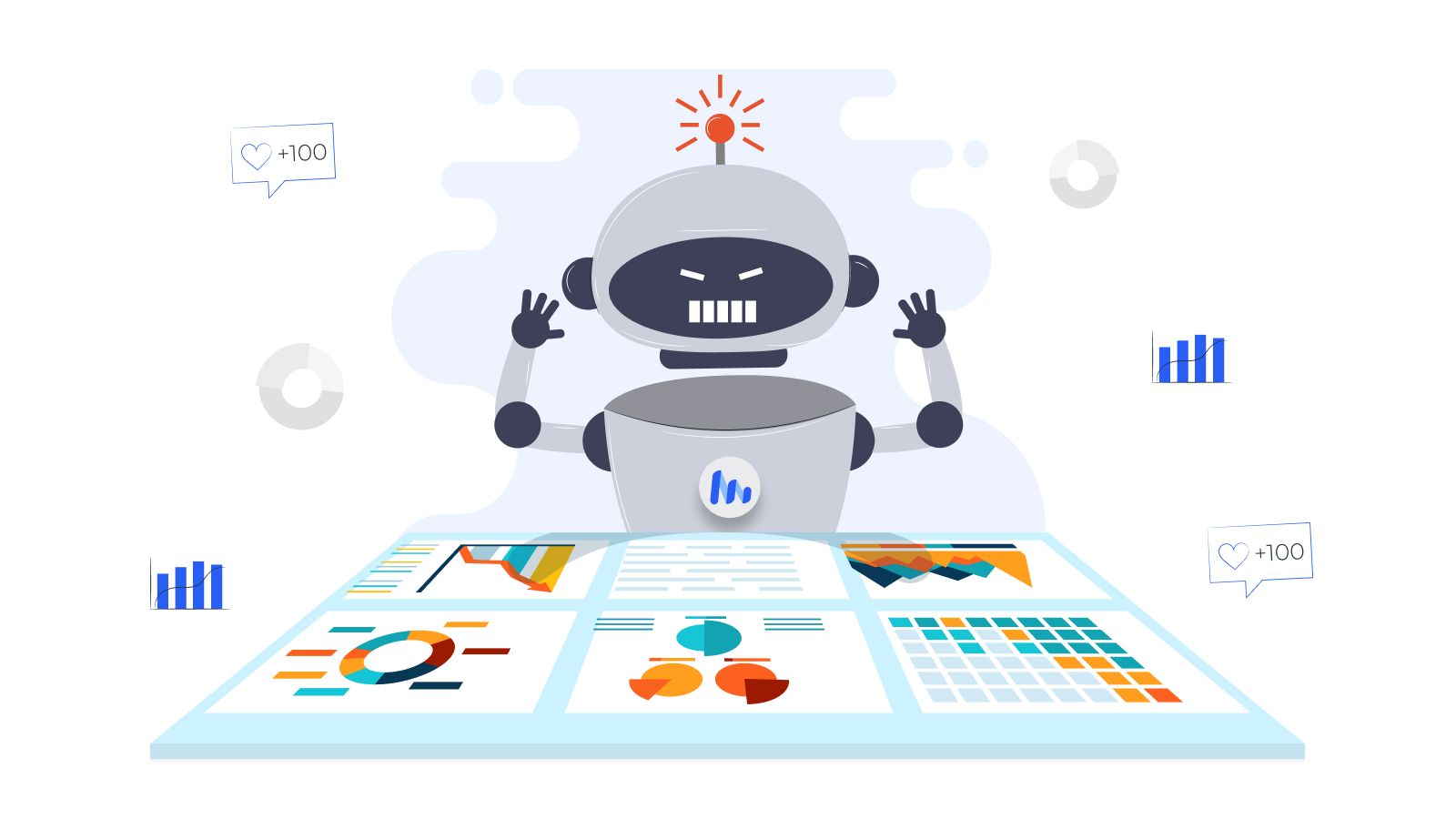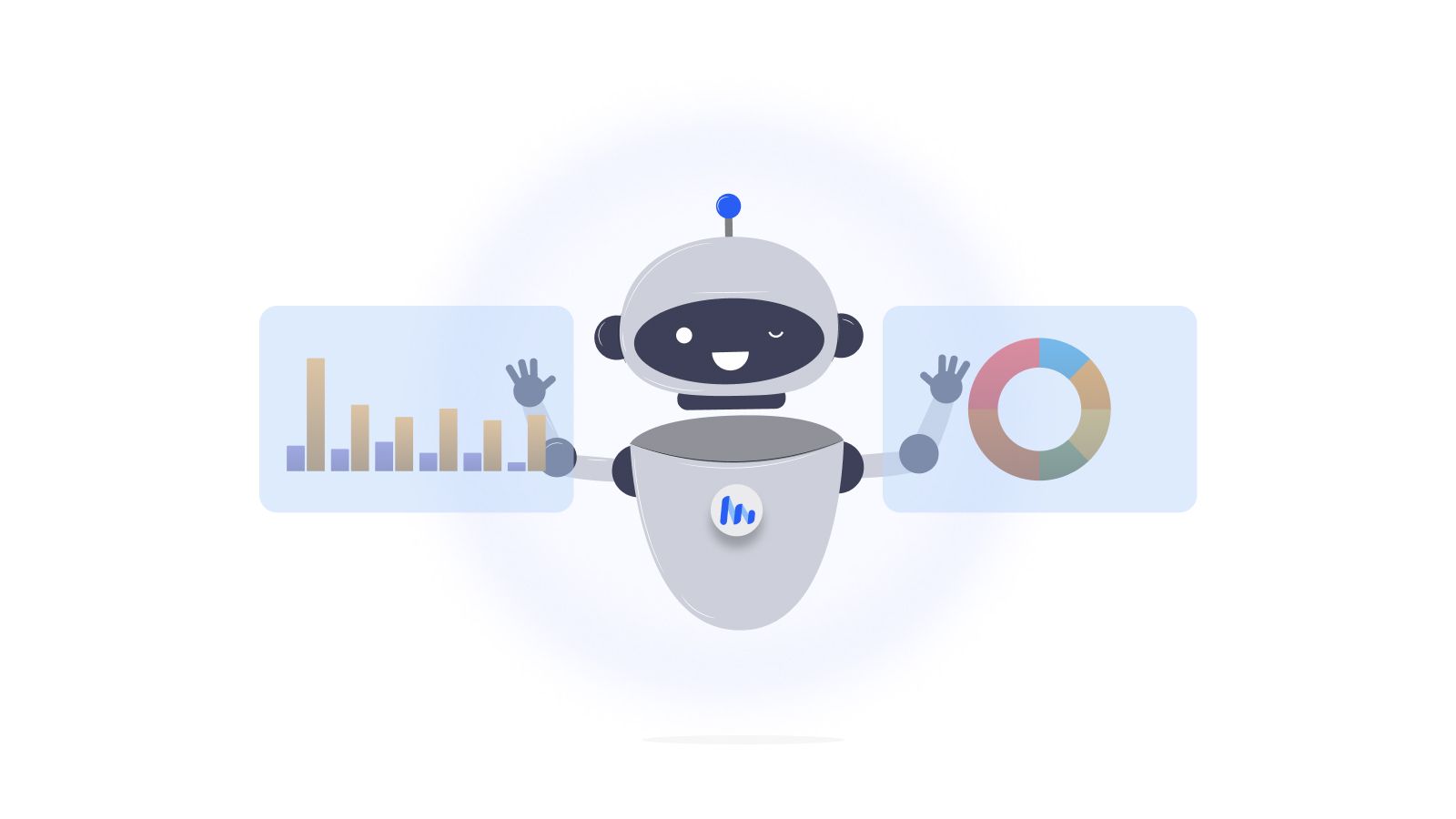How AI Analytics Drives Business Efficiency: A Must-Know Guide
AI analytics is revolutionizing how businesses operate by improving efficiency through automation, speed, and fewer errors. Explore real-world examples and learn why AI analytics is critical to staying competitive.


Parth Jaimini
2024-12-10
In today’s competitive business landscape, operational efficiency isn’t just a goal—it’s a necessity. Businesses of all sizes face mounting pressure to do more with less, streamline processes, reduce errors, and keep up with ever-changing market demands. Operations managers and business owners know that inefficiencies can directly impact the bottom line, costing both time and money.
One solution that’s revolutionizing how businesses achieve greater efficiency is Artificial Intelligence (AI) analytics. From automating repetitive tasks to delivering real-time insights, AI analytics has the potential to optimize processes in ways that traditional methods can’t match. In this article, we’ll explore the challenges businesses face in their pursuit of efficiency, how AI analytics addresses these issues, and real-world examples of how AI is driving tangible improvements.
The Efficiency Challenges Businesses Face
Every business, regardless of size or industry, faces operational inefficiencies at some level. These inefficiencies can stem from outdated processes, human error, data bottlenecks, or simply from the volume of information that needs to be managed on a daily basis.
Here are some common challenges businesses face when trying to improve efficiency:
- Manual, time-consuming processes: Many organizations still rely on manual data entry, approval workflows, or reporting processes that consume valuable time and resources.
- Data overload: With data pouring in from various sources—sales, customer service, supply chains—businesses struggle to process, analyze, and act on it quickly enough to drive decisions.
- Human error: Mistakes in data entry, communication, or decision-making can lead to costly delays and lost opportunities.
- Lack of real-time insights: Delays in accessing actionable data can slow down decision-making, leaving businesses reactive rather than proactive.
- Complexity of scaling operations: As businesses grow, the operational complexity increases, leading to more inefficiencies without the right systems in place.
These challenges are exactly where AI analytics steps in, transforming inefficiencies into opportunities for growth.
AI’s Role in Driving Business Efficiency
AI analytics brings unparalleled advantages when it comes to streamlining operations. By using advanced algorithms and machine learning, AI can automate routine tasks, process data at incredible speeds, and provide insights that help businesses operate more efficiently.
Here’s how AI analytics drives business efficiency:
1. Automation of Repetitive Tasks
One of the most significant contributions AI makes to business efficiency is the automation of routine tasks. From data entry to inventory tracking, AI can take over repetitive processes, freeing up human employees to focus on higher-value work that requires creativity and critical thinking.
For example, in logistics, AI-powered systems can automate inventory management, ensuring stock levels are updated in real-time, reducing human error, and optimizing supply chain processes. This not only speeds up operations but also reduces costly mistakes.
2. Speed and Real-Time Insights
Speed is essential in today’s business environment. AI analytics can process massive amounts of data in real-time, providing actionable insights almost instantly. This allows businesses to make faster, more informed decisions that can significantly improve operational efficiency.
Take customer service as an example. AI-powered analytics tools can analyze customer data, track sentiment in real-time, and alert customer service teams to potential issues before they escalate. This reduces response times and improves the overall customer experience.
3. Fewer Errors, More Accuracy
Human error is inevitable in manual processes, but AI can significantly reduce these mistakes. By automating data processing and ensuring consistency, AI helps businesses avoid the errors that slow down operations and lead to inefficiencies.
In financial services, for instance, AI analytics tools can scan and analyze thousands of transactions for anomalies, flagging potential errors or fraud in real-time. This drastically reduces the time spent manually auditing data and ensures more accurate financial reporting.
4. Scalability Without the Complexity
As businesses grow, managing operations becomes more complex. AI analytics helps organizations scale their operations by automating processes and making data management more efficient. AI systems can handle large volumes of data without slowing down, ensuring that growth doesn’t come at the cost of operational inefficiency.
For example, in manufacturing, AI-powered predictive maintenance systems monitor equipment in real-time, anticipating breakdowns before they occur. This allows businesses to maintain production levels while minimizing downtime—critical for scaling operations efficiently.
Real-Life Examples of AI Analytics Improving Efficiency
Let’s look at some real-world examples of how AI analytics is transforming business efficiency across industries:
1. Amazon’s AI-Driven Logistics
Amazon is a prime example of a company using AI analytics to drive operational efficiency. The company’s AI-powered logistics system uses data from millions of customer orders to optimize its supply chain in real-time. AI analytics ensures that stock levels are managed accurately, delivery routes are optimized, and customer orders are fulfilled faster. As a result, Amazon can deliver on its promise of rapid delivery times while keeping operational costs low.
2. Starbucks and Predictive Analytics
Starbucks has integrated AI-driven analytics into its operations to enhance the customer experience and streamline store operations. By analyzing purchasing patterns and customer preferences, AI helps Starbucks predict demand for different products throughout the day, allowing them to optimize inventory and staffing levels. This predictive capability reduces waste and ensures that resources are allocated where they’re needed most, increasing overall efficiency.
3. GE’s Use of Predictive Maintenance
General Electric (GE) employs AI analytics for predictive maintenance in its manufacturing plants. AI systems continuously monitor equipment performance and predict when machines are likely to fail, allowing GE to perform maintenance at the most efficient times. This reduces unexpected downtime and optimizes maintenance schedules, significantly boosting operational efficiency and cost savings.
Why AI Analytics is Vital for Efficiency
AI analytics isn’t just a tool for improving efficiency—it’s becoming essential for staying competitive in a fast-moving business environment. As companies continue to adopt AI, those that lag behind risk being outpaced by more agile, data-driven competitors.
Here’s why AI analytics is critical for the future of operational efficiency:
- Competitive Advantage: Businesses using AI analytics can make faster, more accurate decisions, giving them an edge over competitors that rely on slower, manual processes.
- Cost Reduction: By automating tasks and minimizing errors, AI reduces operational costs, allowing businesses to allocate resources more efficiently. Enhanced Decision-Making: AI-driven insights enable better decision-making at all levels of the organization, from front-line operations to executive leadership.
- Future-Proofing: As AI technology continues to evolve, businesses that have already integrated AI analytics into their operations will be better positioned to take advantage of future advancements.
Conclusion: Why Embracing AI Analytics is Crucial for Efficiency
AI analytics is transforming how businesses operate, bringing automation, speed, and accuracy to processes that were once labor-intensive and prone to error. For operations managers and business owners, adopting AI isn’t just about keeping up with the times—it’s about leading the charge toward a more efficient, data-driven future.
By integrating AI analytics into your business, you’re not only streamlining operations and reducing costs but also positioning your organization for sustained growth and success. The future of business efficiency is AI-driven, and now is the time to embrace it.
Ready to see how AI analytics can drive efficiency in your business? [Visit our website] to explore the tools and strategies that can transform your operations.
Related posts
Looking for a marketing purpose analytics tool?
Click HereNewsletter
Website owned by : KAIROS LABS PRIVATE LIMITED, Tonk Phatak Jaipur - 302015, Rajasthan
All Rights Reserved
Email : Support@llmate.ai




